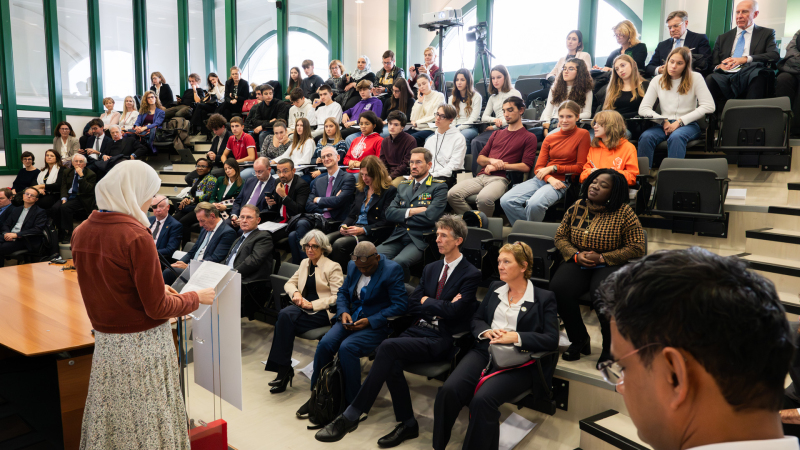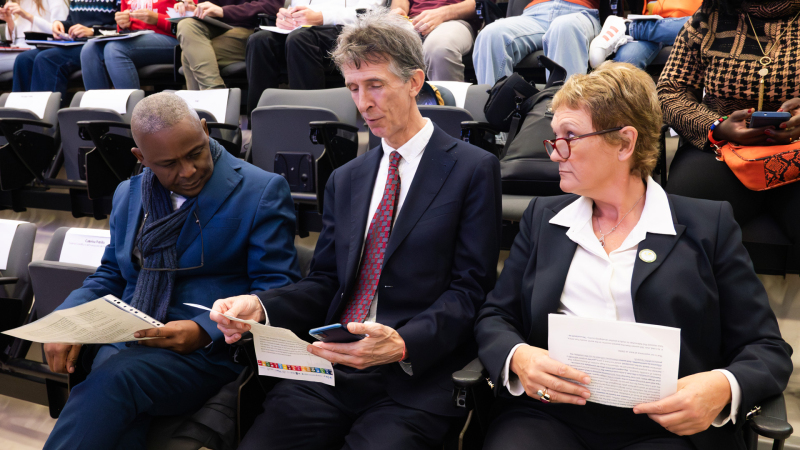The Italian city of Trieste hosts an international scientific hub that contributes vital progress toward achieving the UN Sustainable Development Goals (SDGs). To celebrate this contribution, the event ‘Trieste: Science for the 2030 Agenda’ was held on 15 November 2023 in Trieste as part of the #InsiemepergliSDGs (#TogetherfortheSDGs) campaign.
The Italian Ministry of Foreign Affairs and International Cooperation (MAECI) launched the campaign in 2020. MAECI’s Deputy Minister of Foreign Affairs and International Cooperation Edmondo Cirielli was the major Italian representative at the event.
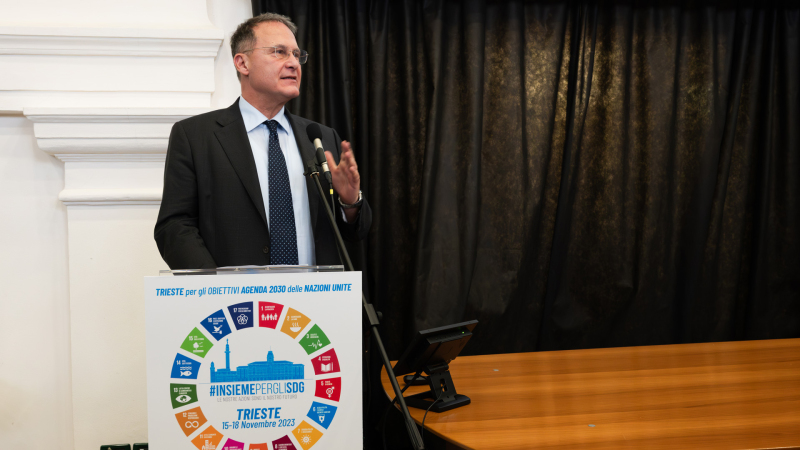
“Trieste is a city of science and scientific cooperation that, also thanks to the presence of the International Scientific Pole, provides research and training to support the most vulnerable countries, starting from Africa where Italy is committed with initiatives to ensure growth, stability and development in the perspective of the Mattei Plan,” said Edmondo Cirielli, Deputy Minister of Foreign Affairs and International Cooperation of Italy.
The 'Mattei Plan' is the Italian government’s framework for facilitating collaboration between Italy and Africa to promote economic and social development.
Partners of the #InsiemepergliSDGs initiative are FAO, UN SDG Action Campaign, CHIEAM Bari, and Save the Children. Among the cities that hosted a 2023 public event are Naples and Trieste, which both also host ports in the Mediterranean Sea.
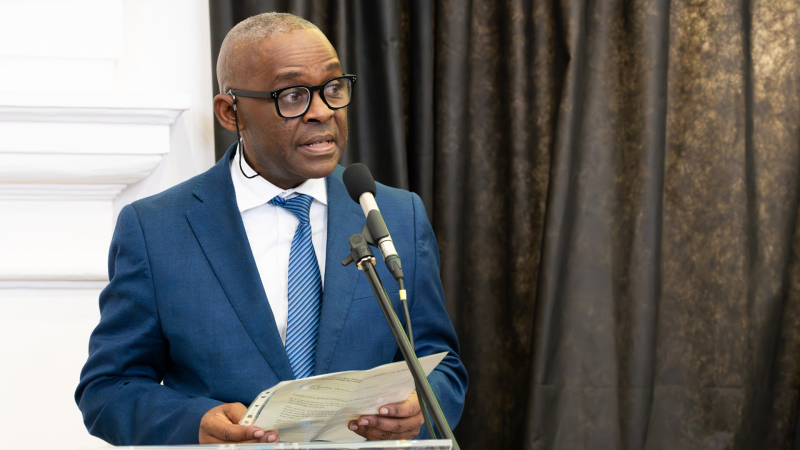
The event saw the participation of:
- Roberto Dipiazza, Mayor of Trieste,
- Fabio Scoccimarro, Regional Councilor for the Environmental Protection, Energy and Sustainable Development,
- Caterina Petrillo, President of Area Science Park and Friuli Venezia Giulia Scientific and Innovation System.
On the scientific side, there were TWAS Executive Director Romain Murenzi and TWAS Programme Coordinator Max Paoli, ICTP Director Atish Dabholkar, ICGEB Director Laurence Banks, IAP Coordinator Peter McGrath, and OWSD Coordinator Tonya Blowers.
In his opening remarks, Murenzi acknowledged the seminal support that MAECI granted to the Academy since its foundation, providing core funding to its activities.
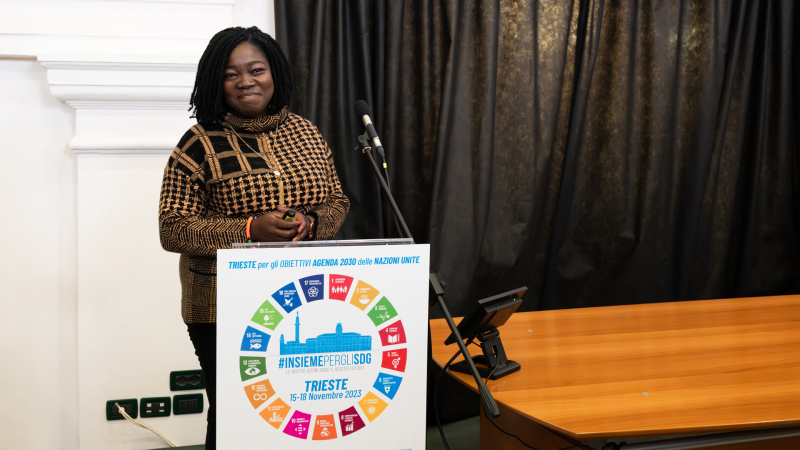
“This successful collaboration is based on the shared belief that economic growth is important to alleviate poverty and discrimination,” Murenzi said. “Today I want to emphasize a single key message: partnerships are pivotal for meeting the SDGs. And in 40 years we have built a strong network, and we are part of the ‘Trieste System’ of scientific organizations, and the Scientific and Innovation System of Friuli Venezia Giulia.”
TWAS is one of the 17 partners of the Scientific and Innovation System of Friuli Venezia Giulia (SIS FVG), created through the support of MAECI, as Area Science Park President Petrillo recalled. Going back to the history of the Trieste System, Petrillo mentioned the year 1983, when TWAS was established, realizing the visionary dream of Abdus Salam and Paolo Budinich. The two 'founding fathers', in fact, suggested to use science to build peace and promote international cooperation.
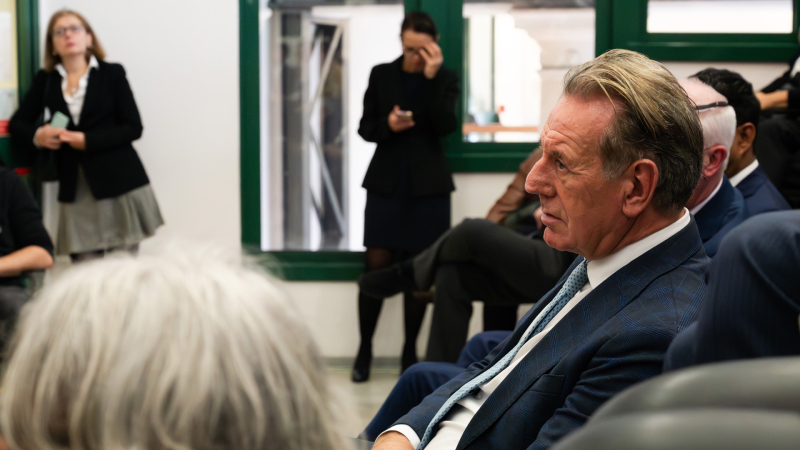
TWAS Programme Coordinator Max Paoli provided an overview of the 60 programmes that TWAS is now offering in partnership with local and foreign institutions. He mentioned, in particular, the successful TWAS-SISSA-Lincei Research Cooperation Visits Programme, which received generous financial support from MAECI and the Italian Agency for Development Cooperation.
The programme was launched in 2020, to allow young scientists from developing countries to specialize in one of the programme’s nine FVG Institutional partners: SISSA, ICGEB, OGS, INFN, IOM-CNR, University of Trieste, University of Udine, Area Science Park, and Elettra Sincrotrone Trieste.
One of the young scientists selected for the programme is TWAS-SISSA-Lincei awardee Adoukè Nadège Agbodjato, from Benin. She was awarded early this year and will be working at the University of Udine until the end of November. There, she studies the biochemical and ecological relationships among plants, microorganisms and the soil in pursuit of sustainable agricultural practices.
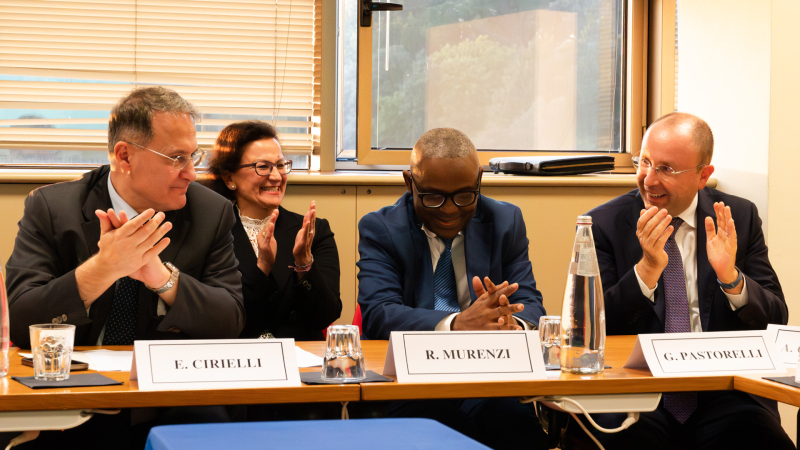
Speaking at the event, Agbodjato expressed her gratitude for the rewarding experience. Working in Italy, she said, she acquired new important knowledge for her career and built valuable links with outstanding colleagues. Upon her return to Benin, she wants to share the acquired skills with colleagues in the lab.
The uniqueness of the TWAS-SISSA-Lincei programme lies in the South-North-South circular structure that allows scientists to spend some time in a laboratory in the North, before returning home to apply their new skills.
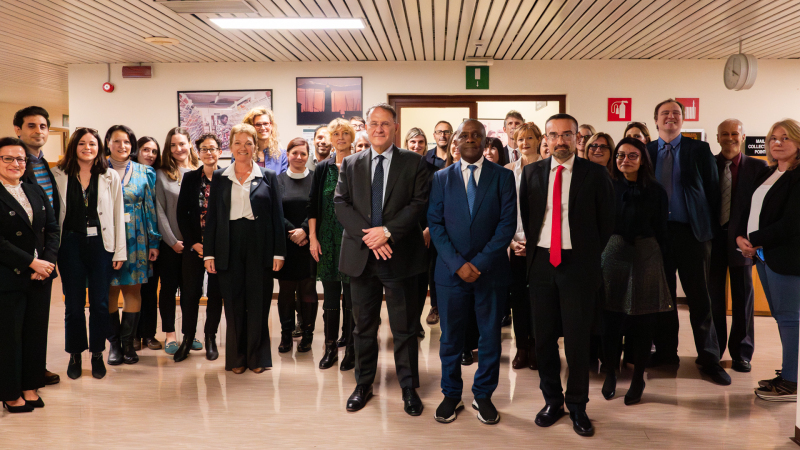
To date, out of more than 220 applications received, 14 female scientists and 16 male scientists aged 32–35 have been selected. They all come from Least Developed Countries: Bangladesh, Benin, Burkina Faso, Burundi, Ethiopia, Madagascar, Malawi, Nepal, Niger, Rwanda, Sudan, Tanzania, Togo and Zambia.
After the event, Cirielli visited the premises of Trieste-based scientific institutions. During his visit to TWAS offices, he greeted members of the staff and engaged in a dialogue with the Academy’s staff, demonstrating and reinforcing the strong partnership between TWAS and its host country.
Cristina Serra
More photos about the visit of MAECI delegation are available here and on the TWAS Flickr page.
